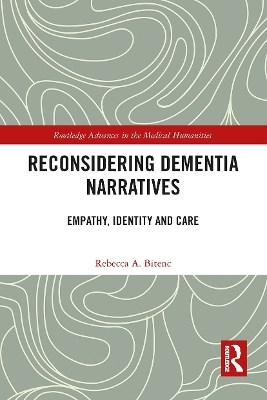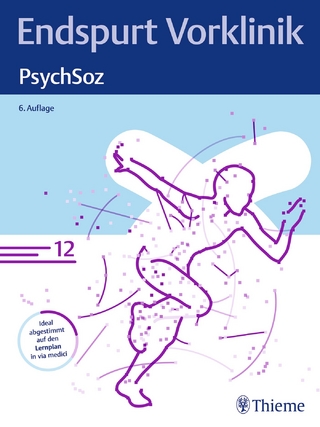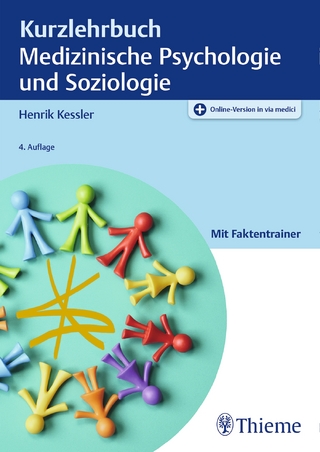
Reconsidering Dementia Narratives
Routledge (Verlag)
978-1-032-57062-4 (ISBN)
Highlighting the need to attend to embodied and relational aspects of identity in dementia, the study further outlines ways in which narratives may contribute to dementia care, while disputing the idea that the modes of empathy fostered by narrative necessarily bring about more humane care practices. This cross-medial analysis represents an interdisciplinary approach to dementia narratives which range across auto/biography, graphic narrative, novel, film, documentary and collaborative storytelling practices. The book aims to clarify the limits and affordances of narrative, and narrative studies, in relation to an ethically driven medical humanities agenda through the use of case studies.
Answering the key question of whether dementia narratives align with or run counter to the dominant discourse of dementia as ‘loss of self’, this innovative book will be of interest to anyone interested in dementia studies, ageing studies, narrative studies in health care, and critical medical humanities.
Rebecca A. Bitenc completed her PhD on ‘Dementia Narratives in Contemporary Literature, Life-Writing and Film’ at Durham University, UK. Her research interests include critical medical humanities, narratology, and narrative ethics. She is a member of the Dementia and Cultural Narratives Network and the Northern Network for Medical Humanities Research. She has an M.A. in English, French and Psychology from Albert-Ludwigs-Universität, Germany.
Acknowledgements; Preface; List of Illustrations; Introduction: Reconsidering Dementia Narratives; Two Starting Points; Why Narrative?; Biomedicine and the Cultural Meaning of Dementia; A Brief History of Dementia; Demography and Demonization; Reconsidering Dementia: Reparative Moves; The Alzheimer’s ‘Epidemic’: Care, Cost and Social Justice; Literary Dementia Studies and the Medical Humanities; Illness Narratives: Countering Master Narratives and Exploring the Experience of Illness; Outline of Chapters; Part I Storytelling, Experience and Empathy; Chapter 1 Narrating Experiences of Dementia: Embodied Selves, Embodied Communication; Embodied Selves, Embodied Communication; Inside Views: Life Writing by People with Early-Onset Dementia; Memory; Language; Perception, Movement and the Senses; Emotions and Cognition; Time; The Social World: Intimate Relationships and Strangers; The Experience of Flow in Dementia; From the Caregiver’s Perspective: Intersubjectivity in David Sieveking’s Documentary Vergiss Mein Nicht; Viewing Symptoms of Dementia; The Communicating Body in Film; Embodied Selves and Relational Selves; Conclusion; Chapter 2 From the Outside in? Experience and Empathy in Fictional Dementia Narratives; Still Alice: From Fiction to Film; Experiencing Dementia/Experimenting with the Novel; Out of Mind; House Mother Normal; The Unconsoled; Concluding Reflections on Narrative Empathy; Part II Life Writing, Self-Writing and Creating Identities; Chapter 3 Life Writing at the Limits: Narrative Identity and Counter-Narratives in Dementia; Narrative Identity in Dementia: Friend or Foe?; Reconsidering Master and Counter-Narratives; The Problem of Counter-Narratives in Dementia: Reading First-Person Accounts by People with Dementia; Coherence in ‘Broken’ Counter-Narratives: ‘Mrs Mill’ and Other Stories; Janet’s Story: Confabulation, Continuity, and Agency; Counter-Narratives in Context: The Editor’s Role; Conclusion; Chapter 4 Relational Identity in (Filial) Caregivers’ Memoirs; The Aesthetics, Ethics, and Politics of Caregivers’ Memoirs; Gender, Genre and the Self: Rethinking Relational Identity in Dementia; My Father’s Brain; Do You Remember Me? A Father, a Daughter, and a Search for the Self; Tangles: A Story about Alzheimer’s, My Mother, and Me; Conclusion; Part III Narrating Dementia/Rethinking Care; Chapter 5 Care-Writing Reconsidered: Towards a New Practice of Dementia Care; Exploring Caregivers’ Dilemmas; Care or Coercion? Autonomy in Dementia; ‘Bad Grooming’: Intimate Care in Dementia; ‘No Good Choices’: Institutionalisation in Dementia; Imagining Alternative Approaches in Dementia Care; Reconsidering Confabulation; The Power of Music; From Control to Letting Go: Being With vs. Symptom Management; Challenging Care Practice; Conclusion; Chapter 6 Making Readers Care: Bioethics and the Novel; Ethics and the Novel: Countering, Stereotyping and Disturbing; Scar Tissue: Biomedicine and the Hermeneutics of Selfhood; Narrative and Neuroimaging: Raising Epistemological Questions; House Mother Normal: Disturbing Care; Exploring Bioethics: ‘Living Through’ as ‘Thinking Through’; Still Alice: (Precedent) Autonomy and Suicide in Dementia; Mode, Medium and the Suicide Plot; Have the Men Had Enough? Gender and the Economies of Care; Conclusion; Dementia Narratives and Beyond; Index
| Erscheinungsdatum | 10.07.2023 |
|---|---|
| Reihe/Serie | Routledge Advances in the Medical Humanities |
| Zusatzinfo | 10 Illustrations, black and white |
| Verlagsort | London |
| Sprache | englisch |
| Maße | 156 x 234 mm |
| Gewicht | 503 g |
| Themenwelt | Medizin / Pharmazie ► Medizinische Fachgebiete ► Geriatrie |
| Studium ► 1. Studienabschnitt (Vorklinik) ► Med. Psychologie / Soziologie | |
| ISBN-10 | 1-032-57062-8 / 1032570628 |
| ISBN-13 | 978-1-032-57062-4 / 9781032570624 |
| Zustand | Neuware |
| Informationen gemäß Produktsicherheitsverordnung (GPSR) | |
| Haben Sie eine Frage zum Produkt? |
aus dem Bereich


